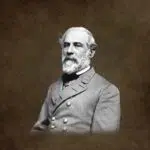We observe European Cervical Cancer Prevention Week from January 19 to 25 this year— the penultimate week of January. We use this week to spread awareness about cervical cancer and its effects. Cervical cancer is curable with early detection. It is also very slow to spread, increasing the chances of cure. All we have to do is test and start treatment before cancer grows. Doctors say that prolonged exposure to certain types of human papillomavirus (H.P.V.) can be the main cause of cervical cancer. It is a very common virus, and it is sexually transmitted. Most women would have had it at some point in their life, but it won’t always manifest as cancer.
History of European Cervical Cancer Prevention Week
Cancer is a condition where the cells divide inexorably, spreading into surrounding tissues. Cancer that affects the cervical region is called cervical cancer. Harald Zur Hausen is generally credited with discovering the cause of cervical cancer. He observed certain strains of the human papillomavirus can cause cervical cancer. The discovery also led to the creation of vaccines to help prevent cervical cancer.
We have known about cervical cancer for a very long time. Hippocrates, a Greek physician known as the father of medicine, noted that it could not be cured. Harald Zur Hausen received the Nobel Prize in 1976 for finding the relationship between cervical cancer and H.P.V. But it took us another 30 years to develop a vaccine. The Food and Drug Administration board approved the H.P.V. vaccine in 2006. By 2018, researchers confirmed that one dose of the vaccine could protect against H.P.V.
A survey of American women revealed that only 40% of women were aware of H.P.V. Another shocking finding is that among them, only half knew that H.P.V. can cause cervical cancer. People of a lower socio-economic class have a higher chance of being diagnosed. The WHO reports that around 28,000 women die every year from cervical cancer in Europe alone.
To spread awareness about H.P.V. and cervical cancer, we observe Cervical Cancer Prevention Week. cervical cancer should not take any more precious human lives. Although it generally only affects women, information about H.P.V. and cervical cancer needs to be spread throughout the population.
European Cervical Cancer Prevention Week timeline
Hans Hinselmann invents the colposcope, an instrument that allows physicians to closely examine one's cervix, vagina, and vulva for signs of disease.
Pap test screening begins detecting potentially cancerous activities inside the cervix and colon.
Health departments begin using the Bethesda system for reporting pap smear results.
The F.D.A. approves the very first vaccine against H.P.V.
European Cervical Cancer Prevention Week FAQs
What is the main cause of cervical cancer?
Women are at risk of cervical because of long-lasting infections with certain types of human papillomavirus.
Can you feel cervical cancer?
There won’t be any symptoms of cervical cancer in the early stages; however, with regular checks, we can detect and treat the condition before it spreads.
Can a man give a woman H.P.V.?
Yes, both men and women can contract H.P.V. It is transmitted sexually, and most people are unaware of it.
How to Observe European Cervical Cancer Prevention Week
Spread awareness about cervical cancer
The bulk of fatalities due to cervical cancer is a lack of awareness. Many people still do not know about cervical cancer. Use this week to spread accurate information about the condition to as many people as possible.
Volunteer for a cervical cancer campaign
There are still people out there who haven't tested for H.P.V. Some of them are unaware, and others think they are safe, because of the absence of symptoms. Find groups volunteering to help people with the condition, and help them connect with those who are not yet aware of it.
Raising funds for cancer treatment
Organize events to raise funds to help people suffering from cervical cancer. If you are not well connected, you can still help with whatever you can. No help is small for those who need it.
5 Facts About Cancer That You Should Know
A mass murderer
Every year, around 10 million people die of cancer.
An old menace
Cancer was known to the Egyptians as far back as 1600 B.C.
Survivors rule
There are approximately 28 million cancer survivors around the world, from all walks of life.
Australians and cancer
Australia has the highest per capita number of cancer patients.
Americans and cancer
Americans spend the most money on cancer treatment and research.
Why European Cervical Cancer Prevention Week is Important
Cervical cancer kills the most
In America, cervical cancer is the leading cause of death due to cancer for women. Dedicating a week to spreading awareness about cervical cancer and prevention methods can help lower the fatality rate.
Prevention is better than cure
Screening for H.P.V. is good and should be done once every five years. This week we can remind people to screen, and such a reminder can sometimes save a few lives.
Dissemination of reliable information
Through events, campaigns, and volunteering, the information about cervical cancer, its effects, preventive measures, etc., will spread to more people. The more we can grab the attention of people about the dangers of the conditions, the better.
European Cervical Cancer Prevention Week dates
| Year | Date | Day |
|---|---|---|
| 2024 | January 15–21 | Monday–Sunday |
| 2025 | January 20–26 | Monday–Sunday |
| 2026 | January 19–25 | Monday–Sunday |
















